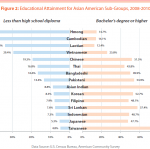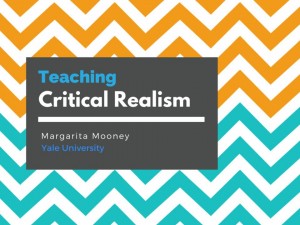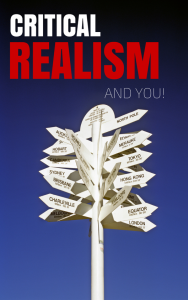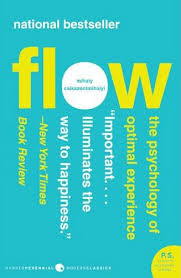 Do you take your leisure seriously? If not, you aren’t going to get flow which I described last week. Contrary to popular belief, flow is not the easy-peasy feeling you get when plopping down on the couch to watch an old movie or the NBA Finals. Flow also is not the exclusive property of musical or spiritual virtuosos who seem to just forget the world around them as they wrap themselves in beauty or prayer. Flow happens when your work or leisure expand your consciousness, producing and optimal psychological state fundamental to happiness.
Do you take your leisure seriously? If not, you aren’t going to get flow which I described last week. Contrary to popular belief, flow is not the easy-peasy feeling you get when plopping down on the couch to watch an old movie or the NBA Finals. Flow also is not the exclusive property of musical or spiritual virtuosos who seem to just forget the world around them as they wrap themselves in beauty or prayer. Flow happens when your work or leisure expand your consciousness, producing and optimal psychological state fundamental to happiness.
Why do we need to be serious about flow? Positive psychologist Martin Seligman convinced me that if you don’t get flow most days, you probably will never be happy. Mihalyi Csikszentmihalyi, the author of Flow: The Psychology of Optimal Experience, states that if you know how to flow, you can expect to be happy practically no matter what, including during times of serious adversity.
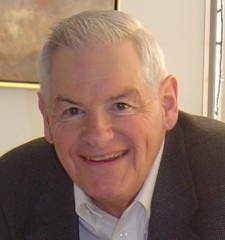
In reply to my blog last week, I heard from a leading sociologist who studies leisure, Robert A. Stebbins of the University of Calgary, whose researched has focused on ‘serious leisure’, ‘casual leisure’, ‘project-based leisure’ and ‘optimal leisure’. Stebbins properly cautioned not to think of flow as just another name for leisure, pointing out in his email that “most leisure activities allow for instances of flow, but that flow is only part of what their participants experience.”
In the November 2010 issue of the Leisure Studies Association Newsletter, Stebbins lists the 8 components of flow as defined by Csikszentmihalyi and examines how various forms of leisure do or do not meet those conditions of flow. In order to meet Csikszentmihalyi’s idea of flow, an activity must meet these 8 criteria:
1. sense of competence in executing the activity;
2. requirement of concentration;
3. clarity of goals of the activity;
4. immediate feedback from the activity;
5. sense of deep, focused involvement in the activity;
6. sense of control in completing the activity;
7. loss of self-consciousness during the activity;
8. sense of time is truncated during the activity.
One important ‘serious leisure activity’ that does not meet the strict critiera for flow is what Stebbins calls the liberal arts hobbies. What is serious leisure? Stebbins defines serious leisure as:
“Serious leisure is the systematic pursuit of an amateur, hobbyist, or volunteer activity sufficiently substantial, interesting, and fulfilling for the participant to find a (leisure) career there acquiring and expressing a combination of its special skills, knowledge, and experience” (Stebbins, LSA newsletter, November 2010).
Surfing or volunteering is certainly leisure, but it’s not serious leisure by Stebbins’s definition. What are liberal arts hobbies, which is serious leisure? According to Stebbins, in liberal arts hobbies, “their goal is acquisition of a body of knowledge and understanding of, for example, one or more arts, sports, foods, beverages, languages, cultures, histories, sciences, philosophies or literary traditions.” Liberal arts hobbies are not mastered for another purpose; the topic is pursued as an end in and of itself.
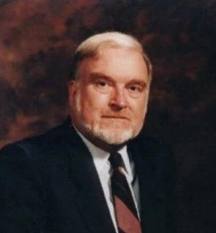
For example, my father collected 2,000 books in his lifetime on a variety of specialized topics, including chess, archeology, classical music and languages. Whenever I traveled to a foreign country, my father asked me to bring him chess books written in foreign languages. Although he was an avid chess player, my dad didn’t want to learn about chess in different languages so he could compete with someone from another country. Rather, he just found immense enjoyment studying languages and chess together—something that really puzzled me until I read about flow. My father definitely was what Stebbins calls a liberal arts hobbyist, and he had what Csikszentmihalyi calls an autotelic personality, understood as someone with a innate curiosity to master things just for their own sake and the ability to concentrate on those things for long periods of time.
The range of topics my father studied always amazed me; now I realize it wasn’t just the topics he studied which interested him but the experience of gathering knowledge as an end in and of itself which fascinated my father. My father also knew the difference between serious and causal leisure, as he would often tell me with a big smile and excitement in his eyes, “Let’s turn off the TV and do math.” In teaching me algebra when I was 6, my dad not only taught me math, he taught me to enjoy the pursuit of knowledge as an end in its own right, which may be what led me to become an academic.
However, as Stebbins rightly points out, liberal arts hobbies don’t require control (component #6 in Csikszentmihalyi’s definition of flow). Hence, Stebbins cautions that not all leisure should be called flow. Stebbins also points out that causal leisure, such as aerobics and game playing, may not be complex enough for flow.
Even if not all leisure is flow, could it be that leisure (in all its forms) is one important building block of flow? Although I can see the need to get serious about our leisure, we can’t be too serious about our flow all the time, can we? Doesn’t casual leisure build up the capacity for serious leisure?
Take together, Csikszentmihalyi’s concept of flow and Stebbins’s concept of serious leisure, such as liberal arts hobbies, reassures me that my own passion for being a professor stems from a desire to know and master a topic just because I enjoy it. I’ve always thought that being a professor was a vocation, even though to some it seems like a vacation because I enjoy it so much.


